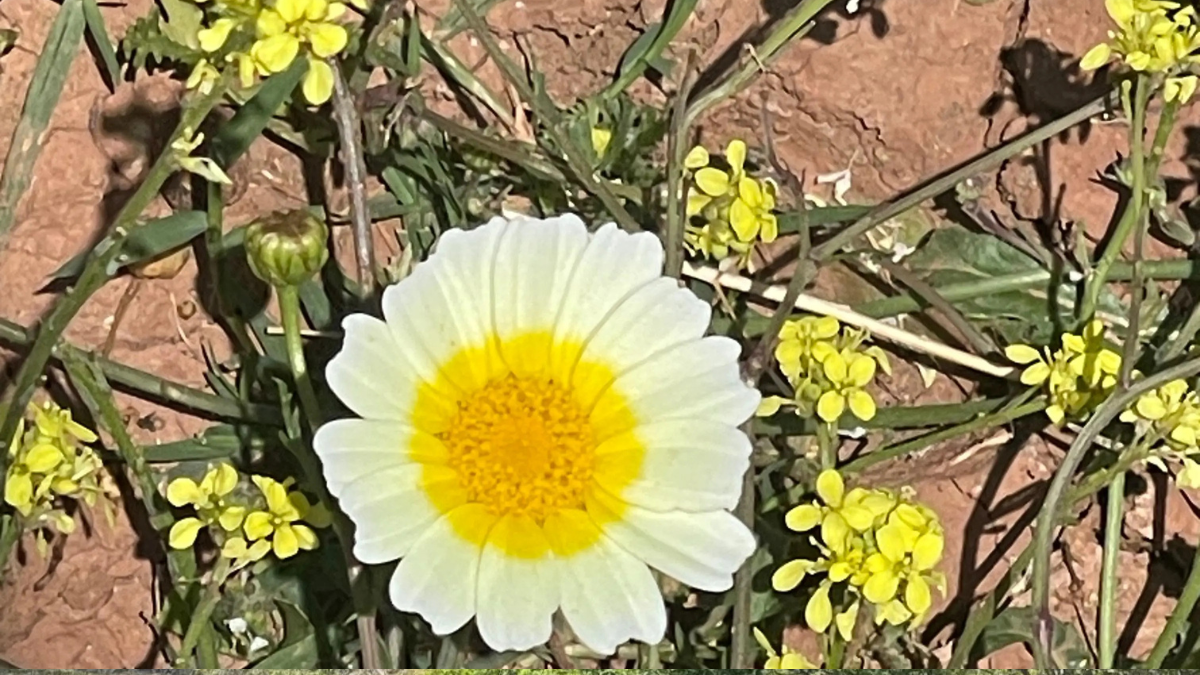Natural stress relief ; Try herbal remedies like chamomile and ashwagandha to ease stress naturally.
Stress used to feel like a heavy blanket I couldn’t shake. My heart would race before meetings, and my mind would spiral at bedtime. Even my go-to coffee breaks left me wired but not calm.
That’s when I turned to the quiet power of herbs. I started with chamomile tea before bed and ashwagandha in the mornings. What started as a small experiment became a lifeline. Research from Healthline and other experts shows these plants aren’t just trends—they’re rooted in centuries of use for natural stress relief.
Now, I want to share how they helped me, and how they could help you too.
Natural stress relief doesn’t mean giving up on science. It means trusting what grows in gardens and labs alike. My journey taught me that small changes in routines, like sipping chamomile or adding ashwagandha to my morning routine, can create big shifts in how we feel.
Let’s explore how these herbs work, why they matter, and how to make them part of your daily life.
Table of Contents
Understanding Stress and Its Impact
Stress isn’t just a feeling. It’s a physical and emotional response that shows signs. Spotting early symptoms helps use stress management techniques before it harms health. By knowing how stress shows up, you can naturally reduce stress and keep well.

Recognizing Stress Symptoms
Common stress signs start small but grow if ignored. Look out for these signs:
- Headaches or stomachaches
- Difficulty sleeping or feeling tired
- Irritability or feeling overwhelmed
- Changes in appetite
These signs mean your body is stressed. Paying attention lets you act fast. This makes reduce stress naturally strategies work better.
How Stress Affects the Body
Stress makes cortisol, a hormone linked to inflammation and tiredness. It can harm the heart, weaken immunity, and cause muscle tension. Scientists say chronic stress changes brain chemistry, making recovery tough. But using stress management techniques like deep breathing or exercise can lower cortisol, easing these effects.
Knowing these links helps you focus on well-being. Small steps today build resilience against stress’s hidden impacts.
My Journey to Finding Herbal Solutions
Stress took over my life, and I looked for stress relief strategies that were gentle yet strong. I tried herbal remedies like chamomile tea and ashwagandha supplements. I started by reading studies from the National Institutes of Health. They showed how natural ingredients can balance hormones and calm the nervous system.
Here’s what worked for me:
- Starting with herbal teas before bed improved sleep quality.
- Tracking my mood after using ashwagandha revealed reduced anxiety spikes.
- Combining herbs with mindfulness practices amplified their effects.

At first, I was skeptical. Would herbs really help? But as I noticed small changes, my doubts disappeared. Chamomile’s calming effects were clear in weeks. I shared my journey online, connecting with others on similar paths.
Today, these remedies are a big part of my life. They’re not a magic fix, but they’re essential for managing stress. If you’re interested in natural solutions, start with something simple. Try chamomile tea or look into ashwagandha. Small steps can lead to big changes, as my story shows.
Exploring Herbal Remedies: Chamomile and Ashwagandha
Herbal remedies like chamomile and ashwagandha are great for reducing stress naturally. These plants have been used for a long time to help with both mental and physical health. Today, science supports their calming effects, making them great for everyday stress.

Chamomile for Calm
Chamomile has a soothing flavor that helps with relaxation. People often drink chamomile tea to calm their nerves. Studies show it can also improve sleep and reduce anxiety.
- Form: Tea, capsules, or extracts
- Benefits: Promotes sleep, eases nervous tension
- Note: Avoid if allergic to daisies or ragweed
👉 I also like to use this lavender essential oil in the evening. A few drops in a diffuser or warm bath make a noticeable difference in how quickly I can unwind.
Ashwagandha for Balance
Ashwagandha is an adaptogen that helps the body handle stress better. It can lower cortisol levels, which is good for stress. I found taking 300–500 mg daily of ashwagandha root extract helped me feel less stressed. Many people say it helps them think clearer and have more energy.
| Herb | Key Benefit | Typical Dosage |
|---|---|---|
| Chamomile | Calms nerves | 1-2 cups tea daily |
| Ashwagandha | Reduces cortisol | 300–500 mg capsules |
Always talk to a healthcare provider before trying new supplements. Both herbs are part of a holistic approach to stress reduction. But, everyone reacts differently. Keep track of how you feel to find what works best for you.
👉 For a high-quality option that helped me, try this Ashwagandha extract in capsules. It’s one of the easiest ways to start building herbal balance into your day.
Setting Up a Relaxation Routine
Starting a daily relaxation routine is easy. It begins with small, consistent actions. I started by setting aside 15 minutes each morning for mindful breathing. I also enjoy a warm cup of Yogi Bedtime Chamomile Tea during this time. Its calming scent and taste tell my body it’s time to relax.
Here’s what works for me:
- Set a fixed time each day, like right after waking or before bedtime.
- Choose 2-3 activities that feel enjoyable, such as stretching, journaling, or sipping herbal tea.
- Track progress with a simple calendar checkmark system to stay motivated.
Adding NOW Foods Ashwagandha supplements to my evenings helped deepen my relaxation. Over weeks, I noticed sharper focus and fewer tension headaches. The key is consistency—mixing self-care rituals with natural remedies amplifies their effects. Even busy days deserve intentional pauses. Small steps like brewing tea or closing eyes for 3 deep breaths matter. These habits form a foundation for lasting holistic stress relief, turning stress management into a natural part of life.
Holistic Stress Management Techniques
Mixing mindfulness with lifestyle changes is a strong way to handle stress. I learned that taking small steps every day can lead to big changes. Studies prove that mindfulness reduces anxiety and boosts focus. Living a balanced life also boosts overall health.
Mindfulness Practices
Begin each day with mindfulness for stress relief exercises. Try 10 minutes of guided meditation or mindful breathing. It helps calm your mind by focusing on the present.
Apps like Headspace or Calm can guide you. Even short breaks at work can refresh your mind.
Lifestyle Adjustments
- Regular walks or yoga help release tension.
- Eat foods rich in nutrients, like leafy greens and nuts, to support your mind and body.
- Getting 7-9 hours of sleep each night is crucial for recharging.
Changing your life doesn’t need to be drastic. Small actions, like drinking herbal tea while meditating or stretching during commercials, can make a difference. When I made these habits a part of my life, I felt clearer and less stressed. Let these practices be your base for lasting peace.
Implementing natural stress relief Techniques
Starting stress relief tips as habits is about small, consistent steps. Adding natural methods to your daily routine can change everything. Here’s how to make it work for you.
Daily Rituals
Consistency builds strength. Try these simple routines:
- Morning tea time: I make herbal teas like chamomile or ashwagandha. Studies show they lower cortisol levels.
- Evening walks: A 15-minute walk outside resets my mind after work. Nature’s calming effect is real.
- Journaling: Writing down thoughts before bed clears mental clutter. It’s a free, instant mood booster.
Stress Reduction Exercises
Physical movements and breathwork are powerful. My go-tos include:
- Deep breathing: Inhale for 4 counts, hold, exhale for 6. This lowers heart rate instantly.
- Desk stretches: Shoulder rolls and neck tilts ease tension without leaving your workspace.
- Progressive muscle relaxation: Tense then release each muscle group—works wonders before bed.
Small steps add up. Pick one tip today and build from there. Your body and mind will thank you.
Embracing Mindfulness and Meditation
Practicing mindfulness and meditation has changed how I deal with daily stress. These methods keep me grounded in the present moment. They help me avoid getting caught up in worries about the future or past. Studies show that just 10 minutes a day can lower cortisol levels, a hormone linked to anxiety.
- Body scan meditation: Focus on each body part to release physical tension.
- Box breathing: Inhale for 4 counts, hold, exhale for 4 counts to reset your rhythm.
- Walking meditation: Combine mindful movement with breath awareness during walks.
| Benefit | How It Works | Source |
|---|---|---|
| Reduces stress hormones | Activates the parasympathetic nervous system | Harvard Health Publishing, 2022 |
| Improves focus | Trains the brain to stay present | Journal of Clinical Psychology |
| Long-term emotional balance | Builds resilience to daily stress triggers | National Institute of Mental Health |
I start each morning with a 5-minute guided meditation app like Headspace. I’ve noticed fewer panic attacks and better emotional control. Consistency is key— even on busy days, I take brief pauses to breathe deeply. Adding herbal remedies like chamomile tea to my routine has made a big difference in managing my anxiety naturally.
Building a Healthy Lifestyle for Stress Reduction
Managing stress isn’t just about quick fixes. It needs a strong base of healthy habits. I learned that mixing relaxation techniques for stress with mindful living leads to lasting change. Studies show that good nutrition, exercise, and sleep lower stress hormones and boost resilience.
Balanced Diet and Exercise
What you eat affects your body’s stress response. Eating whole grains, leafy greens, and lean proteins keeps your energy stable. Regular activities like yoga or jogging release happy hormones. Research links regular exercise to less anxiety, making it key for stress relief.
- Eat foods rich in omega-3s (like salmon and flaxseeds) for brain health.
- Do 30 minutes of moderate exercise daily to lift your mood and reduce tension.
Sleep and Recovery
Sleep heals your body and mind. When I got 7–9 hours of sleep, I thought more clearly and reacted less to stress. Simple habits like avoiding screens before bed or keeping a regular sleep schedule improve sleep quality. This boosts the effectiveness of relaxation techniques for stress over time.
- Start a calming bedtime routine with activities like reading or deep breathing.
- Use blackout curtains to help you sleep better, which strengthens your body’s stress response.
Continuing the Journey with Consistent Practice
Stress relief isn’t just a quick fix. It’s a journey that needs ongoing effort. At first, I found that herbal remedies like chamomile tea and ashwagandha weren’t enough. I needed ways to stay consistent and see results.
- Write in a journal daily to note how I felt after using herbal remedies
- Use apps like Daylio to rate stress levels and spot trends
- Set weekly goals, like meditating 3x a week
Tracking Progress
Experts say setting measurable goals helps a lot. I tried these methods and saw real improvements. Here’s why:
| Method | Pros | Cons |
|---|---|---|
| Journal | Personal insights, low cost | Time-consuming |
| Stress apps | Visual graphs, reminders | Requires phone use |
Staying Motivated
To stay motivated, celebrate small victories. When I reached a goal, I’d treat myself to a relaxing bath or a favorite tea. Phone reminders helped me stay on track. Sharing my progress with a friend also kept me going—I posted updates every week.
Consistency made stress relief a habit for me. Now, I check my progress weekly and adjust my goals as needed. Every step forward, no matter how small, counts.
Conclusion
My journey showed that herbal remedies like chamomile and ashwagandha can ease stress. They work best when combined with mindfulness and lifestyle changes. Research backs this up, showing that herbs, exercise, and sleep improve mental health.
Start small—try sipping chamomile tea or adding a 10-minute walk to your day. Over time, these steps build resilience. Remember, progress isn’t always fast, but consistency matters.
If stress feels too heavy, consult a healthcare provider. They can guide you on the right path. Choose one practice today, like deep breathing or journaling, and see how it fits your life. Every step forward counts toward a calmer, more balanced you.

